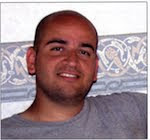This is the time of the year for looking back, a la Time Magazine and CNN. Following is the first installment in my personal (and highly idiosyncratic) view on how the year unfolded:
Historical Person of the Year: Genghis Khan.
It turned out my first piece of the year just happened to mention this much-maligned conqueror. His name came up in the context of traditional societies, where people have far less mental illness and recover far more quickly than those forced to cope with the demands of modern living. We can debate forever about the hows and whys until the cows come home. We did just that over the course of the year.
Nevertheless, Genghis Khan reminds us that even people living back in simpler times had cause to be stressed, which kept the discussion honest.
Later in the year, I devoted an entire piece to the man who made Alexander the Great look like a pussy. In his wake, things were never the same, which offered an excellent object lesson on thinking outside the box and paradigm change - my other major theme of 2010. Clearly, the prevailing biological psychiatry paradigm of mental illness is under threat - from its own shortcomings, from new advances in brain science, and from a growing consumer-led recovery movement. New explanations are needed.
Bottom line: In two different thematic approaches to rethinking mental illness, Genghis Khan was there.
Historical Person of the Year, Runner-Up: JFK
“We enjoy the comfort of opinion without the discomfort of thought,” our 35th President said in 1962. He could have been talking about today. Is Republicanism the New Stupid? I questioned in one blog. (Short answer: Yes, but that doesn’t mean Democrats are smart.) In numerous pieces, JFK served as the pin that punctured the fallacy that our choices are based on reason. Whether we are voting for a political candidate or buying a product or choosing a mate, new research is revealing that the thinking parts of the brain cannot make a decision without input from the primitive limbic regions. Our highly-evolved cortical areas, too often, seem to serve no other purpose than to rationalize our emotional reactions.
Kennedy had an undeniable emotional appeal, but of all things the televised 1960 Presidential debates reveal the man’s appeal to our higher reason. “What piece of work is man?” Some surprising answers are revealed by gazing into that distant mirror.
No doubt about it, Kennedy is there.
Fictional Person of the Year: Hamlet
I have of late - but wherefore I know not - lost all my mirth, forgone all custom of exercises; and indeed it goes so heavily with my disposition that this goodly frame, the earth seems to me a sterile promontory …
What is depression, anyway? Feeling sad? Lack of motivation? Psychic numbing? Is it a “normal” reaction to abnormal events or an abnormal reaction to normal events? A loss of energy or a mammalian need to hibernate? A crisis of the soul? Perhaps it’s even a part of our normal personality. Hamlet did a lot of talking, but scholars still debate the true shade of his “nightly colour.”
Obviously, no two depressions are alike, which makes one wonder why psychiatry treats them as if they were. No wonder we don’t get better. All year, on Knowledge is Necessity, we asked the type of questions that psychiatry needs to be asking. Hopefully, one of these years, psychiatry will begin to do some asking of its own.
In the meantime, Ham-o-let is there.
Fictional Work of the Year: The Draft DSM-5
As those of you who read this blog are aware, the DSM-IV bears little semblance to clinical reality. The DSM-5, which is due to come out in 2013, proudly continues in that tradition. In February, the American Psychiatric Association unveiled its draft, which amounted to (with the notable exception of personality disorders) a reissue of the DSM-III of 1980, replete nearly word-for-word with its antiquated and highly misleading symptom checklists.
This definition of depression, vintage 1980: “Depressed mood most of the day.”
Huh?
I could go on and on. For most of the year, I did. But who listens to me?
The DSM, the DSM, there's nothing like the DSM
It’s a text in medical shape
An illusion of authority
You may read it in a by-street
You may consult it in the square
But when we need an answer, the DSM’s not there!
Much more to come ...
Monday, December 20, 2010
Subscribe to:
Post Comments (Atom)










2 comments:
Thank you for your writing John. You've made a very difficult year a bit easier for me. Joanne Shortell
Ah yes... fiction, the most proper category for the DSM-V.
Happy Holidays John... ALL of them!
Post a Comment